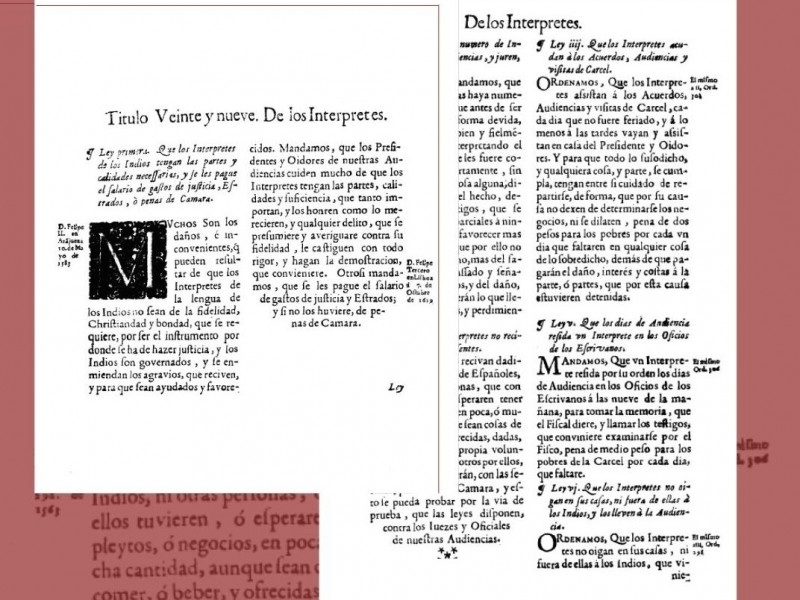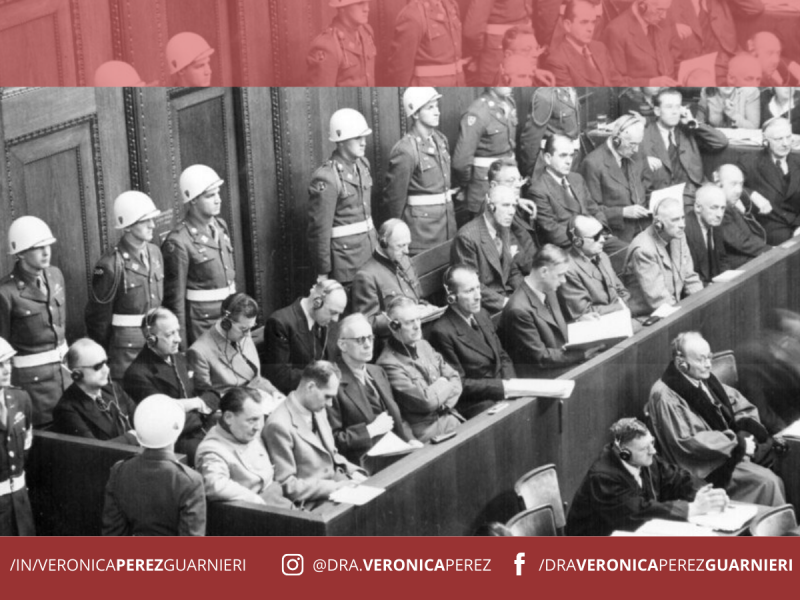En un mundo que, lentamente, vuelve a rodar pensé que sería apropiado tratar sobre las condiciones de trabajo y los honorarios justos para intérpretes y traductores dadas las modificaciones del entorno laboral que presenciamos (y sufrimos) durante 2020.
En 2016, tuve el honor de participar como oradora destacada en el VI Congreso Latinoamericano de Traducción e Interpretación. «El traductor después del mañana». Titulé mi disertación «La Historia de la Interpretación», y el subtítulo podría haber sido: «2000 lenguas de un viaje maravilloso». Organicé la presentación en torno a algunos datos históricos relevantes que formaron un hilo conductor desde el Antiguo Egipto hasta nuestros días:
• Los seres humanos han existido alrededor de unos 4 millones de años, pero han escrito durante menos de 6000 años, ¿la interpretación entonces sería el hermano mayor de la traducción escrita?
• Los historiadores sitúan en el 4200 antes de Cristo el relato de la torre de Babel, del Génesis, donde Dios «castiga» a la humanidad por su arrogancia y su tendencia a la confrontación exponiendo a las personas a la incomprensión lingüística.
• El primer registro del uso de intérpretes data del tercer milenio antes de Cristo, durante de la sexta dinastía de Egipto. En el sur del país, en la Provincia de Elefantina donde había contactos regulares con Nubia, los traductores e intérpretes se encontraban bajo la supervisión del gobernador local. Este llevaba el título de «supervisor de dragomanes» (derivado del término «trujamán», «tarjuman», que significa traductor, intérprete o guía).
• En el 57 después de Cristo, en la Primera Carta de Pablo a los Corintios, hay una mención a los intérpretes. Según el apóstol, no conocer el idioma implica no poder orar en cuerpo y alma: «Hermanos, ¿qué conclusión sacaremos de todo esto? Cuando se reúnen, uno puede cantar salmos, otro enseñar, o transmitir una revelación, o pronunciar un discurso en un lenguaje incomprensible, o bien, interpretarlo. Que todo sirva para la edificación común. ¿Se tiene el don de lenguas? Que hablen dos, o a lo sumo tres, y por turno, y que alguien interprete. Si no hay intérprete, que se callen y que cada uno hable consigo mismo y con Dios» (1.ª Cor. 14:26).
• La ruta de la seda, con su emblemático personaje Marco Polo, también fue una vía que llevó a monjes de todos los países a la India para encontrar manuscritos y textos budistas originales para traducirlos a las lenguas vernáculas. Los políglotas, encontraron una segura ocupación como espías, traductores o agentes diplomáticos.
• Hugh Thomas, en su libro La Conquista de México, hace referencia a una doble traducción en las expediciones desde Cuba a hacia el oeste del Nuevo Mundo, por la diversidad de dialectos existentes en las islas del Caribe.
• Entre 1529 y 1680 se promulgaron veintinueve leyes relativas a los intérpretes y traductores. Estas normas, que regían el ejercicio de la profesión de traductor, se focalizaban en la lealtad.En este sentido, se destaca la publicación: «Recopilación de las Leyes de los Reinos de las Indias, mandada a imprimir y publicar por la Majestad Católica del Rey Don Carlos II», donde, en Título XXIX, De los intérpretes, se sostiene lo siguiente:
- Que los intérpretes tengan la partes y cédulas necesarias (es decir, que sean debidamente licenciados o matriculados).
- Que el nombramiento de los intérpretes se haga como se ordena y que no sean removidos sin causa (para preservar su imparcialidad).
- Que el nombramiento de los intérpretes deba incluir un examen y que un tribunal dictamine sobre su idoneidad.
- Que los intérpretes no acepten regalos.
- Que los intérpretes reciban el salario adecuado (honorarios justos).
- Que se honre a los intérpretes como se merecieren.
- Que los intérpretes se cuiden de cometer ningún delito contra la infidelidad (confidencial, secreto profesional).
• En la Conferencia de Paz de París en 1919, cuando Francia dejó de ser el único idioma diplomático (lo había sido desde que se tomó la posta del latín a principios del siglo X). Esto sucedió porque los líderes aliados que asistieron a la Conferencia decidieron que esta vez no iba a dejar las decisiones en las manos de los diplomáticos (que hablaban francés), sino que ellos mismos se reunirían regularmente. Así, formaron el Comité de los Cuatro: el Presidente de los Estados Unidos, Thomas Woodrow Wilson; el Primer Ministro británico, David Lloyd George; el Primer Ministro italiano, Vittorio Emanuele Orlando, y el Presidente de Francia, Georges Clemenceau, que estaba casado con una estadounidense y hablaba inglés con toda claridad. Se exigió entonces que los idiomas de la Conferencia fueran el inglés y el francés. Esto se aplicaría a los demás organismos derivados de la Conferencia: la Sociedad de las Naciones y la Organización Internacional del Trabajo (OIT).
• En 1945, se llevaron a cabo los Juicios de Núremberg, en los que se determinaron y sancionaron las responsabilidades de dirigentes, funcionarios y colaboradores del régimen nacionalsocialista de Adolf Hitler en los diferentes crímenes y abusos contra la humanidad cometidos en nombre del Tercer Reich Alemán. Uno de los aspectos más relevantes para esta línea de tiempo es que la interpretación simultánea se asentó como método. Para evitar que los juicios se prolongaran durante varios años, en lugar de recurrir a la interpretación consecutiva en cuatro idiomas (francés, alemán, inglés y ruso) se prefirió implementar la interpretación simultánea.
Debemos preguntarnos y reflexionar profundamente sobre los pasos que ha dado el colectivo, la comunidad de intérpretes en su conjunto y las asociaciones que nos nuclean, para entender la importancia de nuestro papel a lo largo de la historia. Los requerimientos expuestos en el 1600 como un ideal, como las condiciones a las que debemos aspirar, en realidad, eran requerimientos aceptados e implementados. No perdamos nunca de vista la importancia de nuestra labor y exijamos condiciones y honorarios acordes. Y recordemos que es muy fácil flexibilizar requerimientos y sumamente difícil, si no imposible, volver a endurecerlos.
Creo firmemente en las palabras pronunciadas por el Dr Pedro Luis Barcia, ex Presidente de la Academia Argentina de Letras, en ocasión de la Asamblea Internacional de la AIIC celebrada en enero de 2012: «El destino de los traductores e intérpretes suele ser el de los puentes: todos los transitan y usan y nadie repara en ellos, en su imprescindible necesidad, en su función comunicativa, de la cual se están valiendo auditores y lectores, para salvar el hiato que separa unas lenguas de otras».



